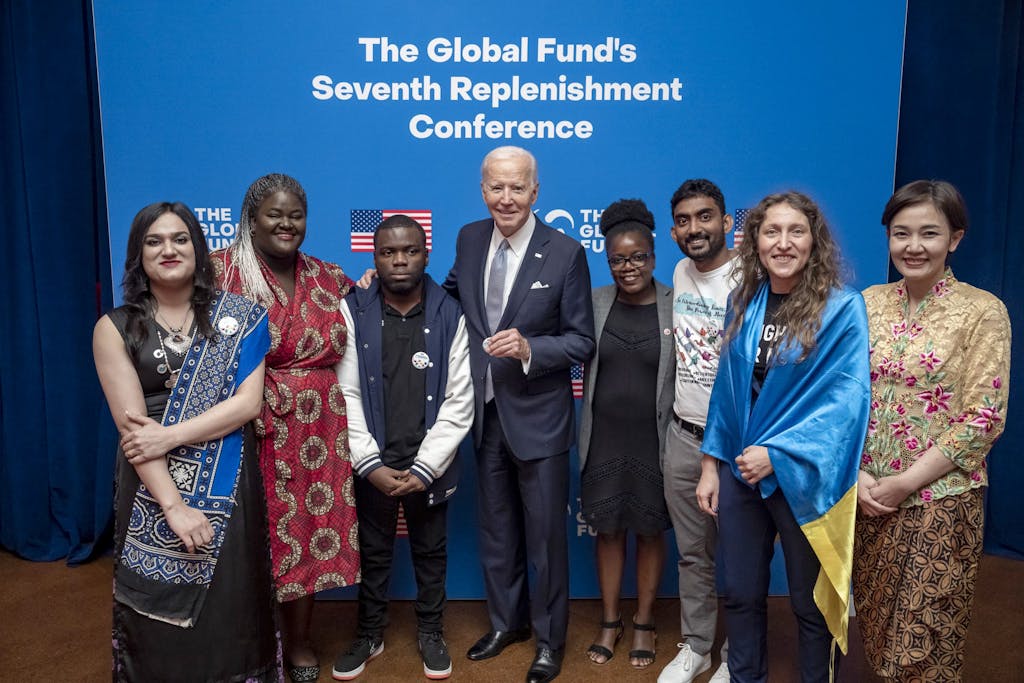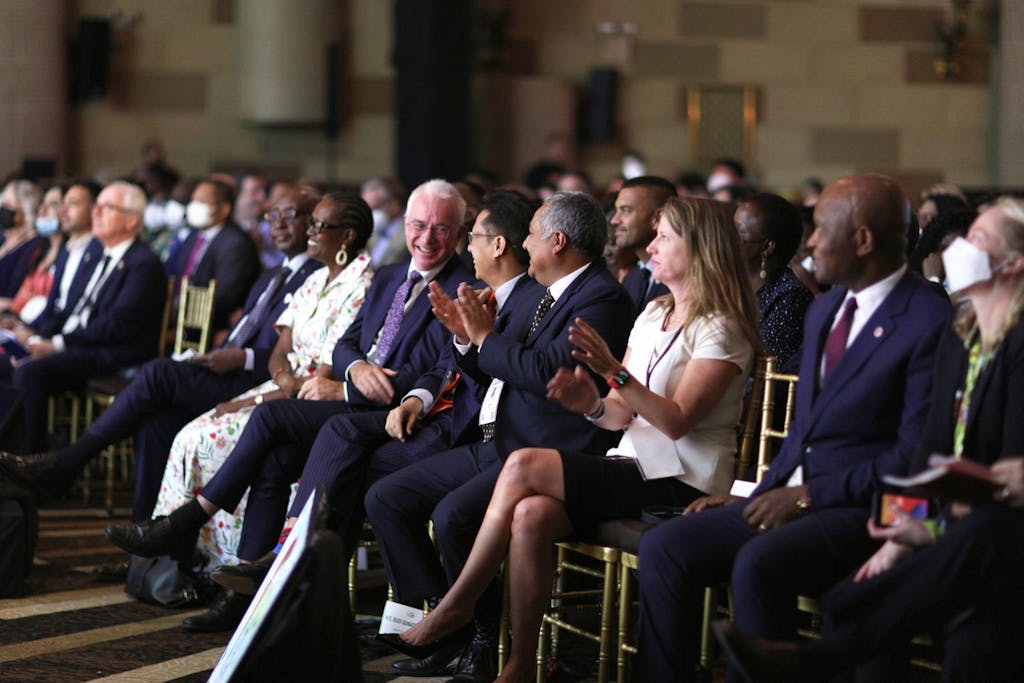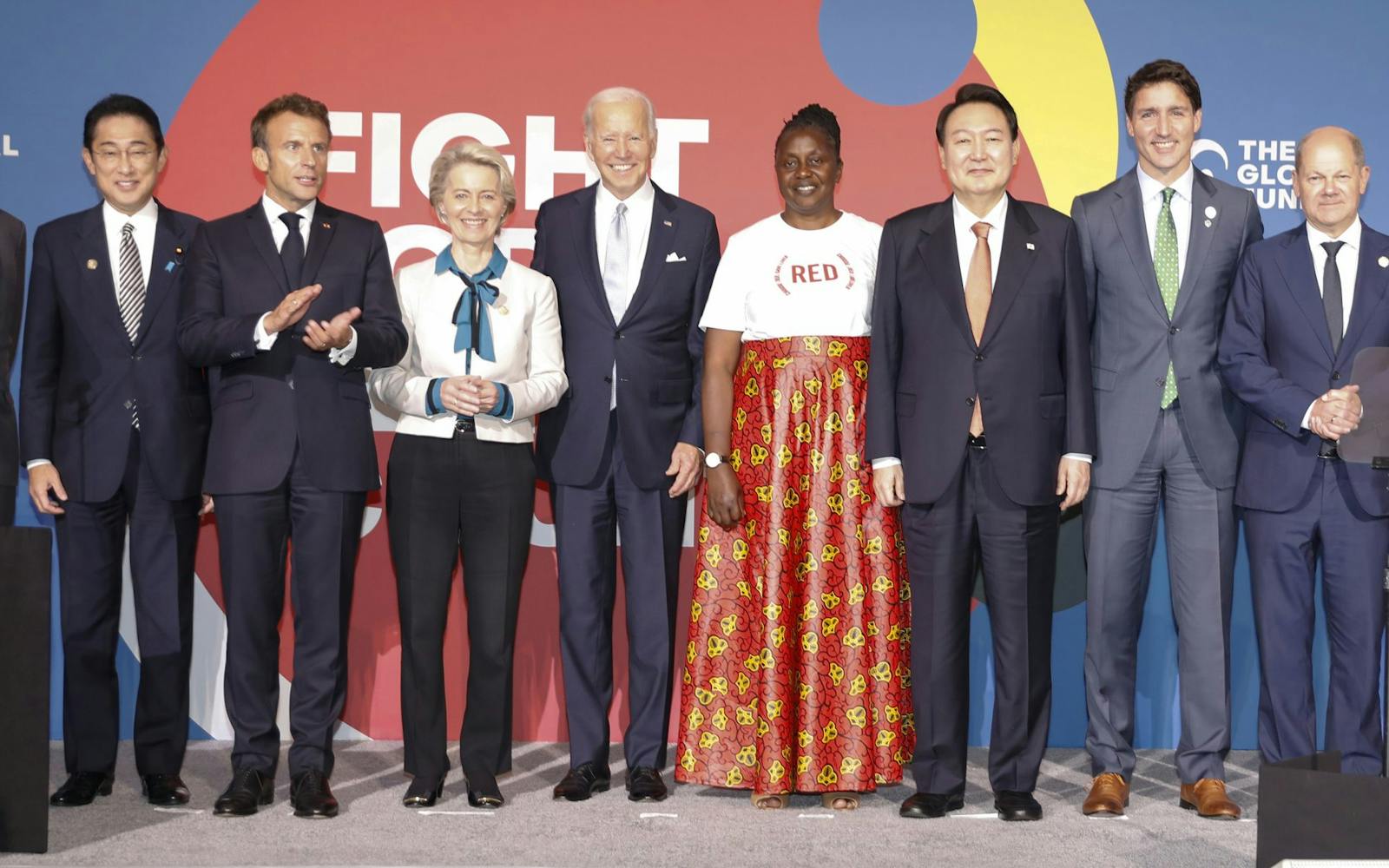This year’s Global Fund Replenishment Conference successfully raised a record-breaking US $14.25 billion to support countries in the fight against HIV, TB, and malaria over the next three years. But the work isn’t done.
Every three years, the Global Fund to Fight AIDS, Tuberculosis and Malaria calls on global leaders, advocates, and partners to commit to defeating all three diseases, ending health inequity, and stopping preventable loss of life. The 7th Global Fund Replenishment Conference, hosted in New York City by U.S. President Joe Biden on the margins of this year’s UN General Assembly (UNGA), raised US $14.25 billion, the most ever raised by any multilateral health fund in history. This monumental achievement reflects the commitment of public and private sector donors to the Global Fund’s mission, even in the face of widespread economic challenges and multiple global crises.
Speaking on behalf of impacted communities and civil society, Javier Hourcade Bellocq beautifully captured the opportunity — and the stakes — of this replenishment, explaining: “We have 50 million reasons to celebrate the 50 million lives of people saved by the Global Fund partnership. Each has a story of hope and a story we should fight to keep alive, and today we have 20 million more we can bring hope to.”

U.S. President Joe Biden with community advocates. Photo: The Global Fund
Funding Gap Persists Despite Historic Commitments
Despite the landmark moment for global health investment, the pledges announced at the conference fell short of the Global Fund’s US $18 billion target for its next three-year funding cycle (2023-2025), putting millions of lives at risk. Today, the fight against AIDS, TB, and malaria is at a precarious juncture. Stagnated funding, population growth, climate change, and humanitarian crises, as well as growing drug and insecticide resistance, have further hindered our ability to make progress against these diseases. For example, according to the 2021 WHO World Malaria Report, in 2020, 627,000 lives were lost to malaria alone — the most deaths due to the disease in a decade, and 69,000 more malaria deaths than the previous year. The challenges will only continue to grow unless sufficient resources are available to sustain and expand elimination and control efforts.
The Difference $18 Billion Could Make
For 20 years, the Global Fund, the world’s largest funder of HIV, TB, and malaria programs, has stood as an extraordinary display of global partnership in the fight to end these three diseases. In addition to saving more than 50 million lives, the Global Fund has worked with countries to reach 23.3 million people with antiretroviral therapy, deliver 5.3 million tuberculosis treatments, and distribute 133 million insecticide-treated mosquito nets. The payoff from the Global Fund’s US $18 billion funding request, if reached, would be remarkable: 20 million lives could be saved from HIV, TB, and malaria. 450 million cases could be averted. Six more countries could eliminate malaria in the next three years. That’s a 1-to-31 return in health gains and economic returns. Investing in this work is an investment in a healthier and more equitable world.
Several weeks remain for public and private donors to pledge their support to the Global Fund for the upcoming three-year funding cycle. We must continue to fight for what counts if we are to meet our targets and end needless suffering and loss of life from these three diseases in our lifetimes.

Attendees applaud at the Fight For What Counts event on September 18, 2022.
Photo: The Global Fund
Solidarity in the Fight for What Counts
This is not the time for donors who have yet to pledge or have pledged less than required to meet the target to sit on the sidelines. It’s time to join their allies in the fight against AIDS, TB, and malaria by increasing their support for the Global Fund. That solidarity was in the spotlight when Heads of Government from donor countries, including Canada, the European Commission, France, Germany, Japan, and the United States, stood together at the Replenishment Conference to voice their support for the Global Fund’s mission and pledged 20-30% more than their last replenishment contributions. Implementing countries similarly showed their commitment with increased pledges — some as much as double their previous pledges. Several new donors stepped forward as well.
It’s becoming more and more clear that this replenishment is an opportunity for the world’s leaders not just to help defeat HIV, TB, and malaria but also to solidify their commitment to multilateral cooperation and partnership. The challenges facing the global community are numerous and urgent: conflict and climate change-induced humanitarian crises, food insecurity, the ongoing COVID-19 pandemic and emergence of new health threats, and increasing economic pressure — among many others. These challenges are too great in scale and far-reaching in their impacts for any one country or sector to solve alone. Rather than being used as an excuse to pull away from multilateral partnerships like the Global Fund, these challenges should serve as a reminder that multilateral cooperation is more critical than ever. Health is foundational to every aspect of society, and investing in health is essential to deliver on the promise of the Sustainable Development Goals, eliminate health inequity, and create a future where no one is left behind. Now is the time to strengthen multilateral institutions like the Global Fund that protect the health systems that make our world safer, more productive, and more resilient.
President Biden, in his closing remarks at the Replenishment Conference, rallied global leaders and partners: “Let’s finish this fight together. Now is the moment to accelerate our efforts, to reduce health inequities, to reduce barriers to access — including gender and human rights barriers — and to build more inclusive health care systems to leave no one behind. To end AIDS, tuberculosis, and malaria for good.”
The fight ahead might be difficult, but there is still time to come together in solidarity, ensure good health for all, and leave no one behind.
About The Global Fund
The Global Fund is a partnership designed to accelerate the end of AIDS, tuberculosis, and malaria as epidemics. As an international organization, the Global Fund mobilizes and invests more than US $4 billion a year to support programs run by local experts in more than 100 countries. In partnership with governments, civil society, technical agencies, the private sector, faith-based organizations and people affected by the diseases, we are challenging barriers and embracing innovation.





